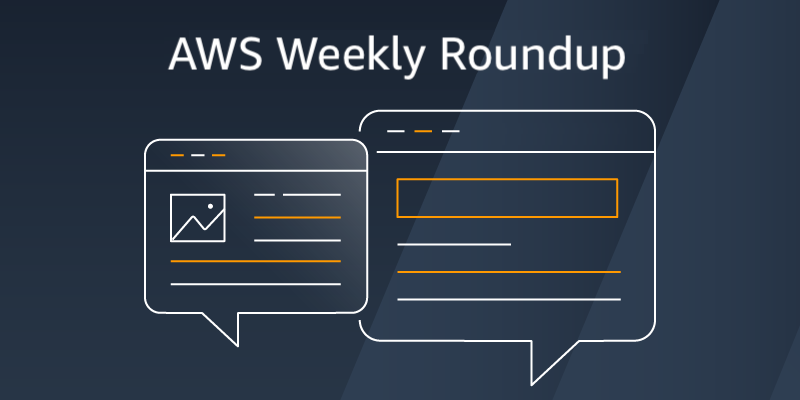AWS News Blog
AWS Weekly Roundup: Claude Opus 4.6 in Amazon Bedrock, AWS Builder ID Sign in with Apple, and more (February 9, 2026)
Here are the notable launches and updates from last week that can help you build, scale, and innovate on AWS. Last week’s launches Here are the launches that got my attention this week. Let’s start with news related to compute and networking infrastructure: Introducing Amazon EC2 C8id, M8id, and R8id instances: These new Amazon EC2 […]
Opening the AWS European Sovereign Cloud
Deutsch | English | Español | Français | Italiano As a European citizen, I understand first-hand the importance of digital sovereignty, especially for our public sector organisations and highly regulated industries. Today, I’m delighted to share that the AWS European Sovereign Cloud is now generally available to all customers. We first announced our plans to […]
Announcing replication support and Intelligent-Tiering for Amazon S3 Tables
New features enable automatic cost optimization through intelligent storage tiering and simplified table replication across AWS Regions and accounts.
Amazon S3 Vectors now generally available with increased scale and performance
Scale vector storage and querying to new heights with S3 Vectors’ general availability—now supporting up to 1 billion vectors per index, 100ms query latencies, and expanded regional availability, while reducing costs up to 90% compared to specialized databases.
AWS DevOps Agent helps you accelerate incident response and improve system reliability (preview)
New service acts as an always-on DevOps engineer, helping you respond to incidents, identify root causes, and prevent future issues through systematic analysis of incidents and operational patterns.
AWS Partner Central now available in AWS Management Console
Access Partner Central directly through the AWS Console to streamline your journey from customer to Partner—manage solutions, opportunities, and marketplace listings in one unified interface with enterprise-grade security.
Introducing VPC encryption controls: Enforce encryption in transit within and across VPCs in a Region
AWS announces VPC encryption controls, a new capability that helps organizations audit and enforce encryption in transit for all traffic within and across VPCs in a Region, simplifying compliance with regulatory frameworks like HIPAA, PCI DSS, and FedRAMP through automated monitoring and enforcement modes.
New Amazon Bedrock service tiers help you match AI workload performance with cost
Amazon Bedrock introduces three service tiers—Priority, Standard, and Flex—allowing you to optimize AI workload costs by matching performance requirements with pricing for different application needs.








